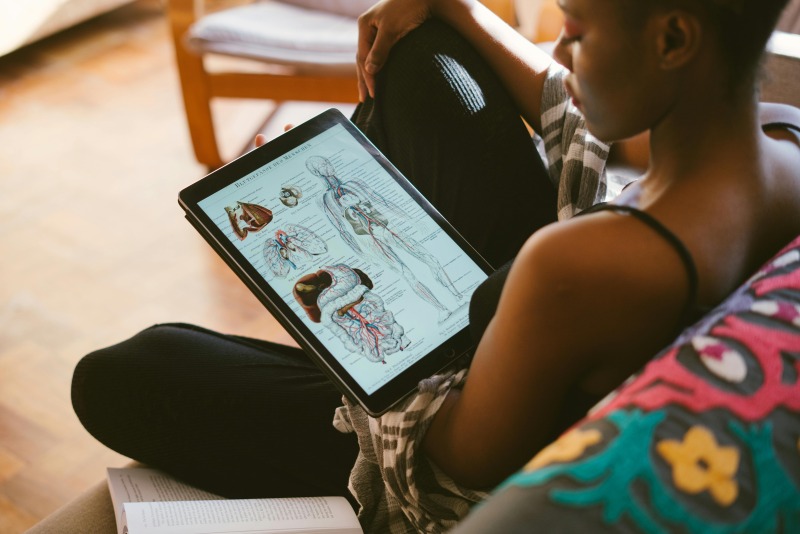
The world of medicine is constantly changing, driven by the rapid globalization of healthcare.
From tackling international disease outbreaks to learning about diverse cultural health practices, today’s medical professionals must think beyond their borders.
This shift requires medical schools to reimagine their curricula to better prepare students for the complexities of a globalized industry.
In regions where diverse populations bring unprecedented health challenges, professionals need to develop a broad understanding of global healthcare trends.
Modern education programs are stepping up to the challenge by weaving global public health principles, cultural awareness, and technological advancements into the learning experience.
Let’s explore the critical ways these shifts are reshaping medical education.
Table of Contents
Public Health and Its Global Impact
Public health has always been a crucial medical care component, but its role in global healthcare has expanded significantly in recent years.
Today, the focus isn’t just on individual treatment—it’s about overcoming systemic health challenges like pandemics, climate-related illnesses, and inequities in healthcare access.
Training future healthcare professionals to view issues through a global lens is critical in reducing these far-reaching problems.
Programs offering specialized education, such as a Public Health Online Masters, often empower students to bridge the gap between individual patient care and community health.
These online programs provide flexibility and equip learners with skills to manage international health crises, analyze large-scale data, and implement preventive measures.
Public health expertise is becoming indispensable, helping professionals become global change-makers.
A Renewed Focus on Cultural Competency
Globalization has brought diverse populations closer together, making cultural competency a vital skill for medical professionals.
Patients from different backgrounds often have distinct health beliefs, communication styles, and expectations from care providers.
Medical education now emphasizes training students to respect and understand these differences to improve patient outcomes.
Cultural competency isn’t limited to theoretical lessons—it’s integrated into hands-on experiences like role-playing scenarios and community health projects.
These activities teach students how to interact with patients in ways that build trust and understanding.
For example, students may learn to navigate language barriers or approach culturally specific health practices with sensitivity.
This shift means that future healthcare providers are equipped to serve patients from all walks of life.
Technology as a Game-Changer in Medical Training
Technology is a driving force in how medicine is practiced and taught.
From AI-assisted diagnostics to telemedicine, the healthcare landscape is becoming more tech-driven.
Modern medical curricula are integrating these advancements to prepare students for the realities of contemporary practice.
Students now have access to immersive simulations, such as virtual surgeries or disease outbreak management, that mirror real-world scenarios.
This type of training bridges the gap between theory and practice, offering invaluable hands-on experience.
Beyond education, technology is helping students tackle global health challenges by providing tools for data analysis, resource optimization, and cross-border collaboration.
Collaborative International Experiences for Students
Medical education increasingly includes international exposure to help students broaden their understanding of healthcare systems.
Programs like global internships and exchange opportunities immerse students in healthcare settings vastly different from their own, fostering adaptability and deeper insight into varied practices.
For example, they may learn resource allocation strategies in rural clinics or explore community-driven healthcare models in underserved regions.
Alongside technical knowledge, these experiences build interpersonal skills crucial for steering through the complexities of global healthcare.
Students gain a unique appreciation for diverse medical challenges and develop the flexibility to work across borders.
This real-world exposure is invaluable, helping them graduate with the confidence to overcome healthcare issues in dynamic environments.
Overcoming Health Inequities Across Borders
Disparities in healthcare access remain a global concern, and addressing these inequities is becoming a central theme in medical training.
Today’s students are taught to recognize the systemic factors—like poverty, geography, and policy gaps—that lead to unequal health outcomes.
Such lessons enable them to become advocates for change and focus on solutions that bridge healthcare divides.
Education programs include case studies on successful interventions, such as improving vaccination rates in low-income countries or increasing access to preventive care in underserved urban areas.
This training empowers students to view inequities not as insurmountable barriers but as challenges they can actively work to resolve.
It’s about preparing the next generation to champion fairness in healthcare delivery.
Preparing for Emerging Global Health Challenges
Medical education is looking ahead, preparing students for the unpredictable future of healthcare.
Climate change, emerging infectious diseases, and antibiotic resistance are reshaping the landscape, demanding that professionals develop innovative strategies to manage these challenges.
For example, future doctors and public health experts are now studying the links between environmental changes and disease patterns, learning how to mitigate risks before they escalate.
Programs also encourage research into solutions, such as the development of vaccines for new diseases or the use of AI in outbreak prediction.
Integrating these forward-thinking topics allows medical schools to create a proactive workforce capable of meeting tomorrow’s global health needs.
The evolution of medical education, shaped by global perspectives, is paving the way for more adaptable and empathetic healthcare professionals.
Students are not just learning technical skills—they’re gaining a deeper understanding of cultural nuances, systemic inequities, and emerging global threats.
This holistic approach equips them to keep pace with an ever-changing healthcare landscape with skill and compassion.
As medical curricula continue to innovate, the future looks brighter for both patients and practitioners worldwide.









